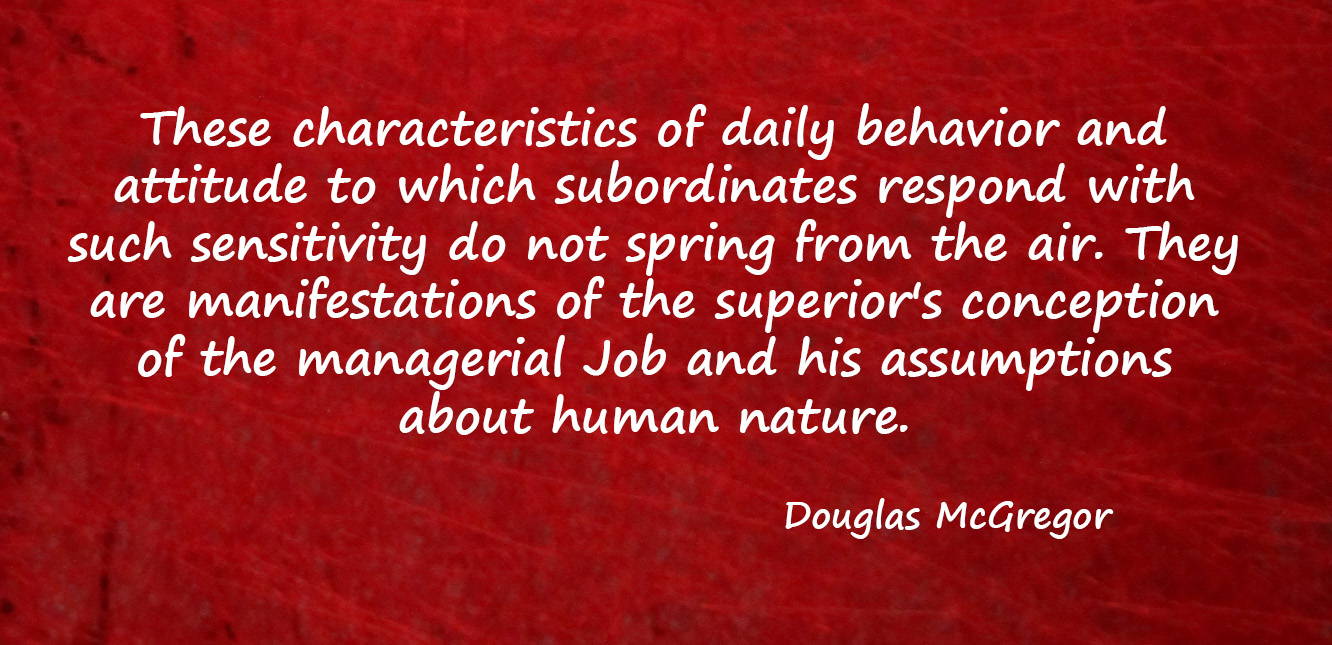Wat McGregor hier beschrijft is een inzicht dat tegenwoordig algauw onder het containerbegrip “organisatiecultuur” zou worden gevat. Maar, wat McGregor stelt en hoe hij het stelt maakt het wel een stuk grijpbaarder dan wanneer we het begrip “organisatiecultuur” er aan zouden verbinden.
Mensen leren dagelijks ‘on the job’. Ze leren nuttige dingen, ze maken zich vakkennis eigen en kennis over de omgeving waarbinnen hun organisatie zich bevindt. Naast al die dingen leren ze ook vrij ongemerkt “hoe het heurt”, oftewel ze maken zich de ongeschreven regels eigen die in de organisatie gelden. En ze passen zich aan deze ongeschreven regels aan. Kortom, ze worden deel van de cultuur (om dat begrip toch nog maar een keer te gebruiken).
Every encounter between a superior and subordinate involves learning of some kind for the subordinate. (It should involve learning for the superior, too, but that is another matter.) When the boss gives an order, asks for a Job to be done, reprimands, praises, conducts an appraisal Interview, deals with a mistake, holds a staff meeting, works with his subordinates in solving a problem, gives a salary increase, discusses a possible promotion, or takes any other action with subordinates, he is teaching them something. The attitudes, the habits, the expectations of the subordinate will be either reinforced or modified to some degree as a result of every encounter with the boss. This is why "on-the-Job training" is such a significant process. It is why the results of classroom supervisory training are often discouraging. The day-by-day experience on the Job is so much more powerful that it tends to overshadow what the individual may learn in other settings.
En zo is het!
Citaten uit “The Human Side of Enterprise”

